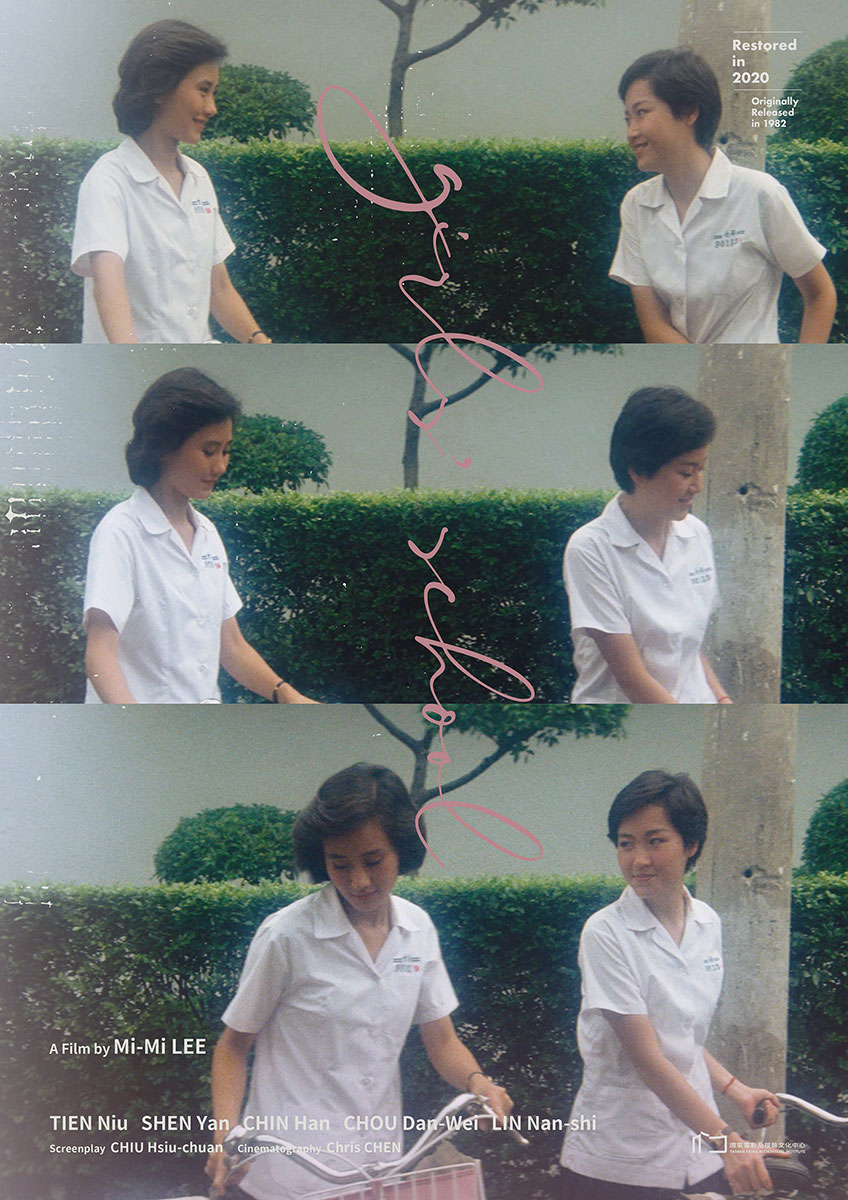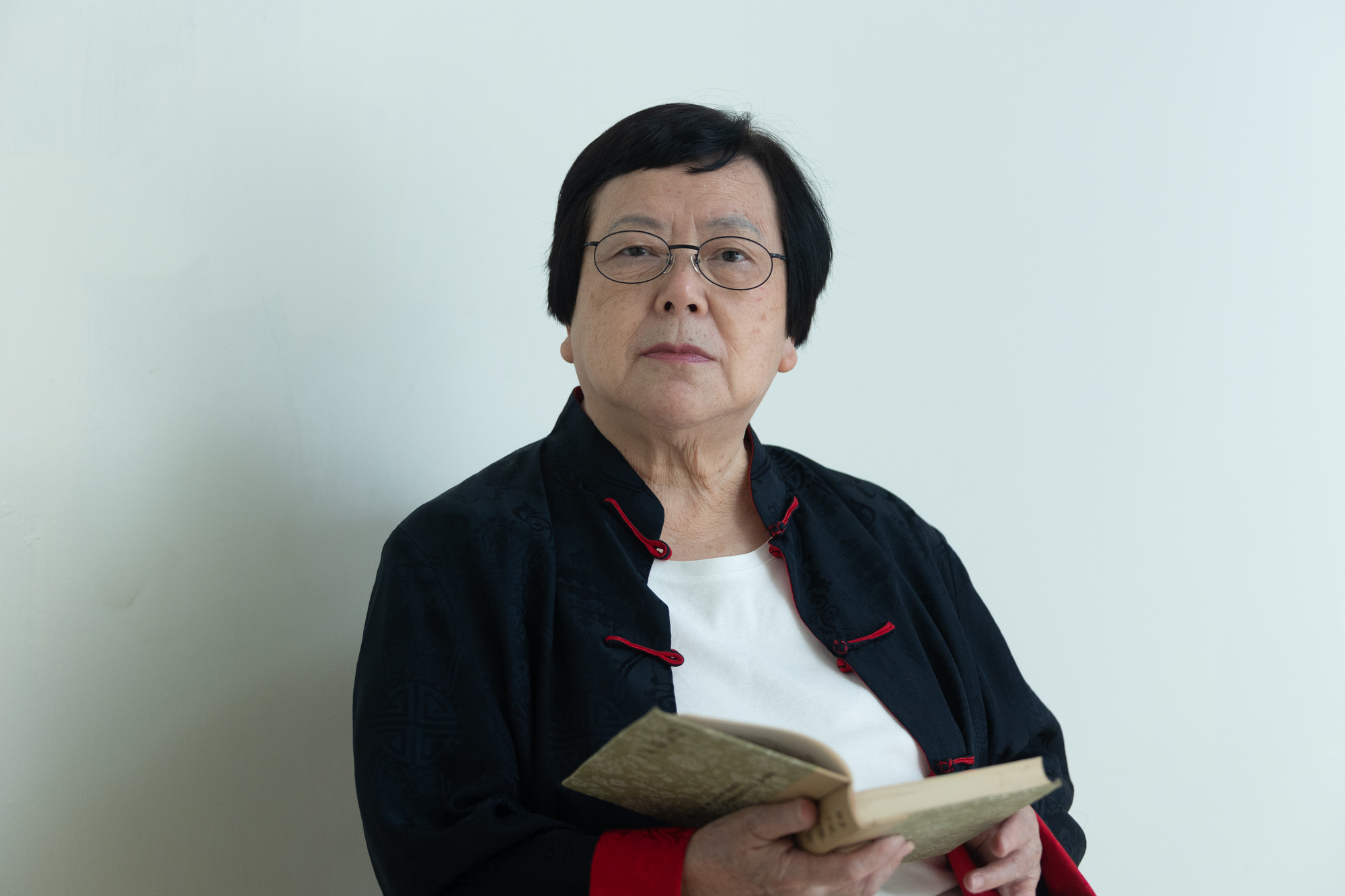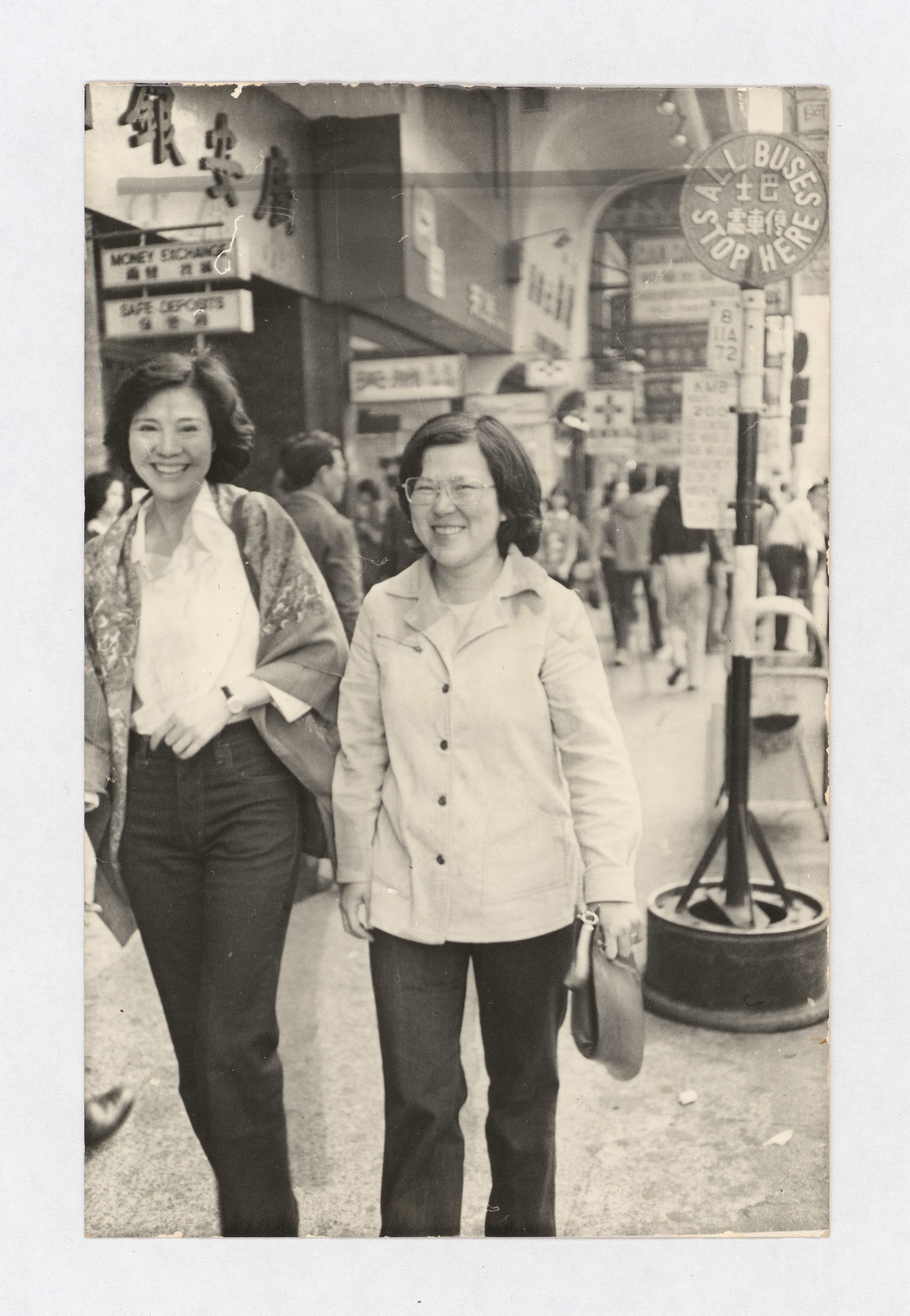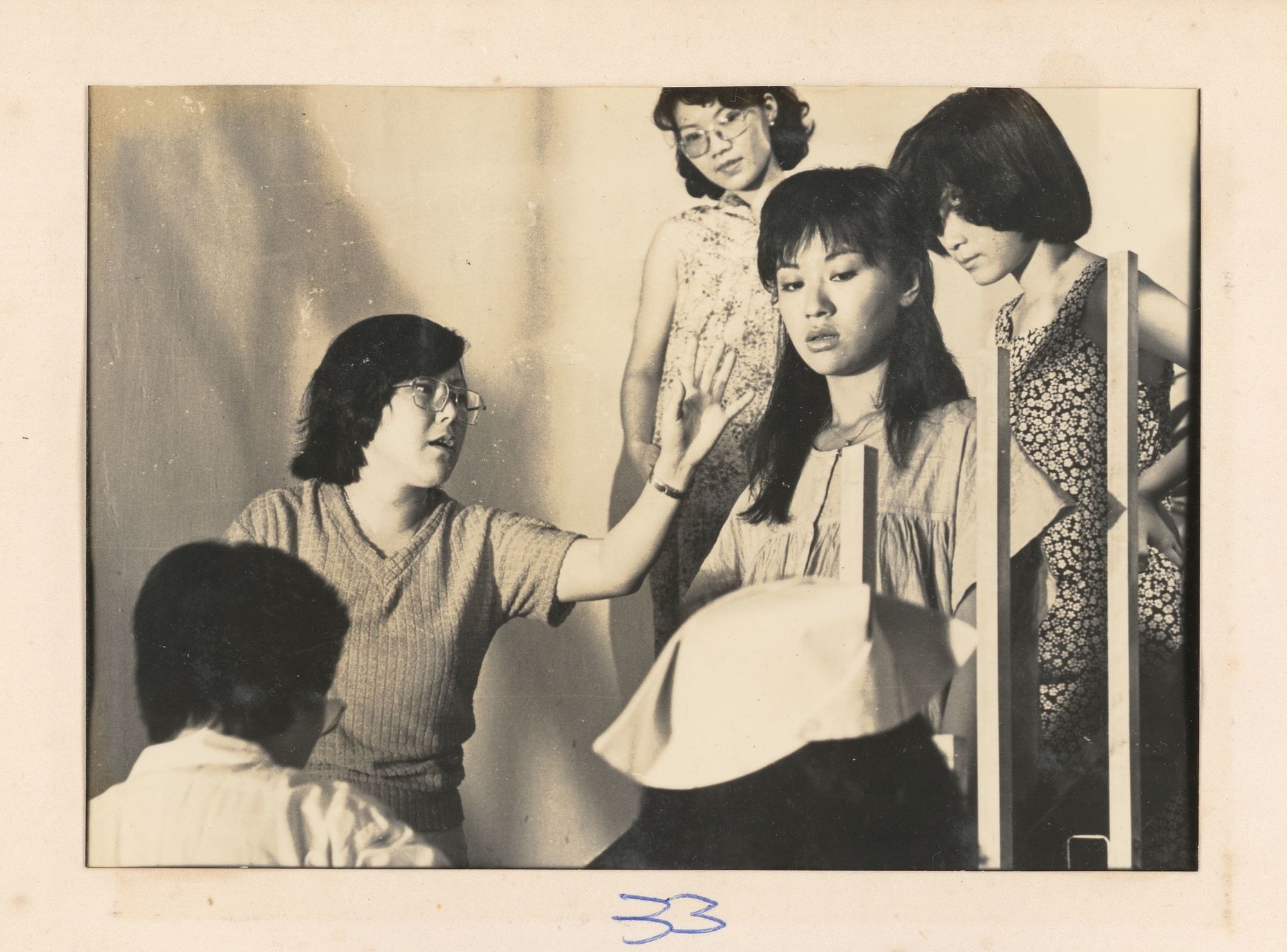Girls’ School by Lee Mimi
Queer East, Broadway Cinema
originally presented as a talk on the 21st November 2022.This is the script for an introduction to the film Girl’s School by Taiwanese filmmaker, Lee Mimi, screened at my local independent cinema in Nottingham, Broadway. In the summer of 2022 I was invited by my friend and fellow Nottinghamian Kate Wood, the program co-ordinator for Broadway; she had spotted me in the cinema cafe preparing for a job interview and came over to introduce herself. We had been Instagram friends for years, but never met in person before that moment. Needless to say, it was serendipitous to meet a new queer friend in my hometown, right as I was moving back. A few weeks later she invited me to select and introduce one of the films from Queer East’s touring programme. I’d been to see a screening of East Palace West Palace at the BFI just weeks before, where Chris Berry had shared his experience of visiting the set. I of course had no such experiences, nor am I Taiwanese, but Kate and I agreed that we wanted to see a story of women loving women on screen. I watched the screener in quarantine, on a tiny television in my hotel room in Sai Ying Pun in Hong Kong, a place that resonates with my own queer identity and awakening.In researching the film, it became even more profound to me, as a story of queer love and friendship beyond sexualisation, as well as the tenacity of women in filmmaking in 1970s Asia. When I found out that Lee had actually set up her production company in Hong Kong, somehow it felt like it was part of my story too. The introduction ended up being a small and intimate gathering - we laughed and theorised together afterwards over drinks and nachos.As a queer Asian person, it was truly a gift to be able to share some thoughts on the film and Lee Mimi, and it was a great moment of queer respite for me amidst my academic work. I hope I get to do more of this, researching and exchanging more queerly and emotionally like I could for this screening.

Good evening everyone, and welcome to the second Queer East screening at Broadway. My name is Vivien Chan, I’m a PhD candidate at University of Nottingham and a lecturer at Nottingham Trent University, and I have the great honour of introducing tonight’s film, Girl’s School by Taiwanese director Lee Mi-mi (Li mei mi). Thank you so much to Kate Wood from Broadway Cinema for inviting me to pick and introduce the film and to Queer East director Yi Wang for such a brilliant programme and bringing these films all over the UK. For tonight’s introduction, I wanted to give you a bit of background on Lee and the making of Girls’ School, and how she was among the pioneers of women’s stories in the Taiwanese Cinematic Wave in the 1980s. The 1980s and 1990s was also the beginning of more prolific queer culture and activism in Taiwan, but lesbian relationships still remained taboo. Girl’s School was released in 1982 during a period when homosexuality, while not illegal, was politically and socially suppressed.The story centres on the lives of two school girls, Chih-Ting and Chia-Lin, and follows the development of their intimate friendship under the increasing social pressures of their classmates, teachers and family.
The film is the third in a trilogy dubbed the ‘Taiwan Urban Women's Trilogy’, her first foray as an independent filmmaker and director. The three films Unmarried Mothers, Evening News and Girls’ School, were entirely focused on the lives of three sets of ostracised women in society, unmarried mothers in their 20s, divorced women in their 30s, and outcast girls in their teens navigating their sexuality and relationships. Lee chose to fund the films herself so that she could retain the autonomy over the narratives, travelling to Singapore and Hong Kong to negotiate with production and distribution companies, but eventually opening her own in Hong Kong called Qian Kee Film Company to produce her films. In spite of the unusual focus on the everyday experiences of women at the time, without morbid fascination of sex or self-sacrifice, the films were a huge hit across East and Southeast Asia, and the wider Sinophone diaspora. In 2019, as part of a major project collecting the archives and oral histories of Taiwanese female directors, the Taiwan Film and Audio Visual Institute restored Unmarried Mothers, Evening News and Girls’ School, and you can find a fantastic online exhibition and catalogue on their website. Much of the information and all of the archival photos you’ll be seeing this evening comes from there.
 Portrait of LEE Mi-mi by Zheng Yuchen
Portrait of LEE Mi-mi by Zheng Yuchen

Left to right: Li Meimi (right) and Gui Yalei (left), the two raised funds for the production of "Evening News”. Photo taken on Nathan Road in Hong Kong when they visited to negotiate funding.; "Unmarried Mother" on-site work photo. Director Li Mimi (front left) directs Zhang Yingzhen (front right). (all photographs courtesy/Taiwan Film and Audio Visual Institute)
The story of Girls’ School is based in Pingtung, a small city in the south of Taiwan east of Kaosiung, and the setting is actually of Lee’s hometown and her alma mater Pingtung Girl’s High School. In an interview in the Taiwanese media outlet The Reporter, Lee described herself as ‘the daughter who loves to read’ out of a family of five girls and four boys. Born in 1946, firmly in the middle as the fifth child, although she was the daughter of a successful business in the Pingtung district, she was quiet and somewhat alienated at school. Nevertheless, her time there clearly had a profound impact on her storytelling, and, without spoiling too much, her experiences at Pingtung Girls’ High School mirrored that of the characters and some of the tragic turn of events that happen in the film. As the cerebral and introverted girl from a well-to-do family, as she said, no one in her family thought that she would go into film. In the late 1960s, she went to study Broadcasting and Television at the World Journalism College in Taipei, and quickly became obsessed with movies while working on the crew of Taiwanese film Fengshengbang directed by Tetsuya Yamanouchi and Lin Chung Kuang. From there she began her career, working her way up from a scene recorder to become assistant director for numerous Taiwanese films, documentaries, and TV series, becoming the youngest director at Taiwan Television in the mid 1970s. As well
as a director she was also a keen scriptwriter where by
the end of the decade she started planning and writing Evening News.
Through the Urban Women’s Trilogy, Lee pioneered the storytelling of women through the eyes of women, centring on the spaces and lives of Taiwanese women and girls during a time where women the world over were navigating patriarchal systems and social constructs. While the 1980s was an explosive period of filmmaking in Asia, at the height of Hong Kong’s action packed cinematic success, Taiwanese film was embarking on a new cinematic wave narrating realistic stories of life in Taiwan. Lee’s contribution depicting the lives of women breaking from tradition without punishment, was a significant shift for the industry.* Unmarried Mothers and Evening News were celebrated for their humanistic portrayal, and Lee specifically veered away from traditional close, middle and long shots to follow the emotions in the scene. Returning to Pingtung to film Girls’ School, she received huge support from the community including her family and her alma mater, who opened the campus for filming for two months and real students were included as extras in the film. The star studded cast, including Tian Niu, Shen Yan, Qin Han and Zhou Danwei were exciting visitors to the small Southern city, and the close knit dynamic brought the students in to act as classmates in the same classroom.
Through the Urban Women’s Trilogy, Lee pioneered the storytelling of women through the eyes of women, centring on the spaces and lives of Taiwanese women and girls during a time where women the world over were navigating patriarchal systems and social constructs. While the 1980s was an explosive period of filmmaking in Asia, at the height of Hong Kong’s action packed cinematic success, Taiwanese film was embarking on a new cinematic wave narrating realistic stories of life in Taiwan. Lee’s contribution depicting the lives of women breaking from tradition without punishment, was a significant shift for the industry.* Unmarried Mothers and Evening News were celebrated for their humanistic portrayal, and Lee specifically veered away from traditional close, middle and long shots to follow the emotions in the scene. Returning to Pingtung to film Girls’ School, she received huge support from the community including her family and her alma mater, who opened the campus for filming for two months and real students were included as extras in the film. The star studded cast, including Tian Niu, Shen Yan, Qin Han and Zhou Danwei were exciting visitors to the small Southern city, and the close knit dynamic brought the students in to act as classmates in the same classroom.
*as a little side-note, without spoilers, something tragic does happen to one of the protagonists... but the way I see it, the two never have to deny their love for eachother. Punishment is a difficult idea, but I felt that the end was not so much a ‘happily-ever-after’ but much more ambiguous. It could also be that Lee was pressured to make a more crass ending by the distributors at that time, but still for me, it brings up some interesting questions about what queer love can look like...which is to say, complicated.



Left to right:
A photo taken of LEE Mi-mi at a photo studio when she was in the third grade of Pingtung Girls' High School.; "Girls' School" on-site work photo (digital coloring). ; A personal photo taken during the filming of "Girls' School“. Handwritten note on the back of the photo: Mi-mi’s ‘school sister’ Hui Cun took the photo at the beginning of summer in 1982 at Pingtung Girls' High School. (all photographs courtesy/Taiwan Film and Audio Visual Institute)
Although Lee intended for Girls’ School to be a window into the emotional world of girlhood, the film unintentionally became a rare example of queer love between girls on screen. Girls’ School’s depiction of the love between two school girls emphasises the intimacy and devotion in their relationship, rather than a voyeuristic microscope on the impossibility of their love. Queerness in Girls’ School, and indeed all the films in the trilogy, isn’t expressed through a sexual gaze, but rather through having to navigate the conflicting emotions surrounding identity and connection. As Lee explains ‘I have always believed that love is illusory. In contrast I value friendship more.’ Chih-Ting and Chia-Lin’s hopeful self-realisation within their friendship, as individuals and together as lovers, triumphs in the end.
This aspect of queerness was what resonated with me most, as I find that the raw devotion and fiery
This aspect of queerness was what resonated with me most, as I find that the raw devotion and fiery
assuredness in teenage girlhood is rarely depicted in
queer media even today. In queer Asian histories, it makes me think of the legacies of comb sisters, groups of women who chose to remain unmarried and independent by living, working and dying with eachother, or all-women theatre groups travelling together to perform queer coded stories. While the tragic deaths or salacious rumours often become the focus of these histories, the mundane stories that Lee shares in her films and subsequent television series’ is much more interested in the small ways women and girls have bolstered, misunderstood, forgiven, and lived together in the bigger narrative of homophobia and patriarchy. Queer friendships form such a huge facet of LGBTQ experience, as connections that draw us closer to eachother and help us to navigate ourselves, and yet it is often overlooked in queer storytelling. The examples of love seen in Girls’ School shows the multiple ways love can manifest at the same time: as romance, family, sensuality, self-worth, and friendship.

With this in mind, while the story of Girls’ School focuses on our two protagonists, I encourage you to also indulge in the luscious colours and textures of the world they share with their raucous classmates. Enjoy the breathless bike rides, gentle touches, bouncing curls and grapefruit skies. I’ll leave you with one of Lee’s memories of filming with these students ‘from rushing to school in the early morning, morning exercises, folk dances, from class to after school, to the class trip to Kenting, everywhere is full of youthful atmosphere and energy. The bickering between students in class is also interesting. It’s both funny and in line with the liveliness that high school girls should have.’
References:
https://www.twreporter.org/a/saturday-features-film-mimi-lee
https://tfai.openmuseum.tw/muse/digi_object/70e14c7d02d4c59254f5ad12e783589f
https://aaww.org/queering-history-archiving-the-future-in-search-of-taiwanese-lesbian-history/
https://books.google.co.uk/books?hl=en&lr=&id=s64sDwAAQBAJ&oi=fnd&pg=PP4&dq=taiwanese+film+lesbian+girls+school&ots=NXDVul8rlG&sig=-_WNMhnYXHr2JVKZhsG0c6yE-cg&redir_esc=y#v=onepage&q=taiwanese%20film%20lesbian%20girls%20school&f=false
